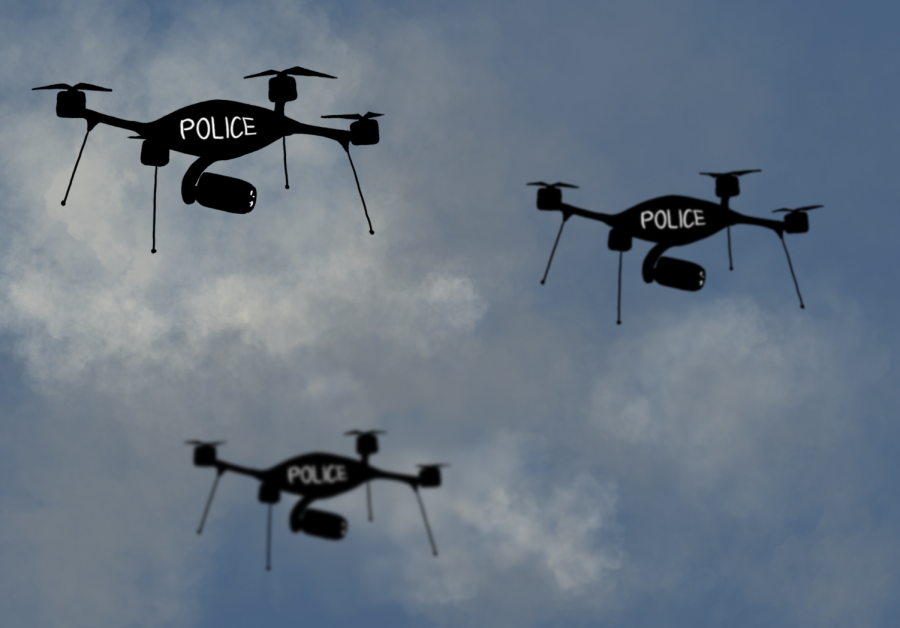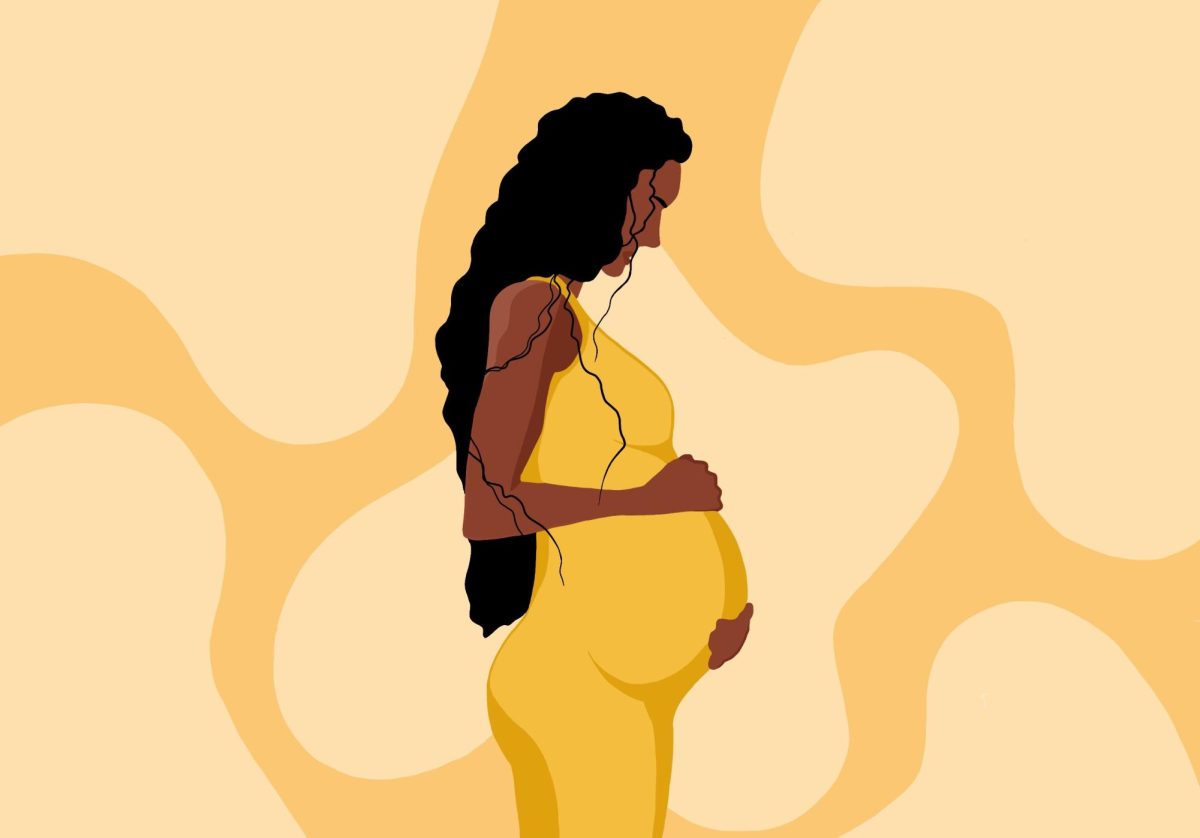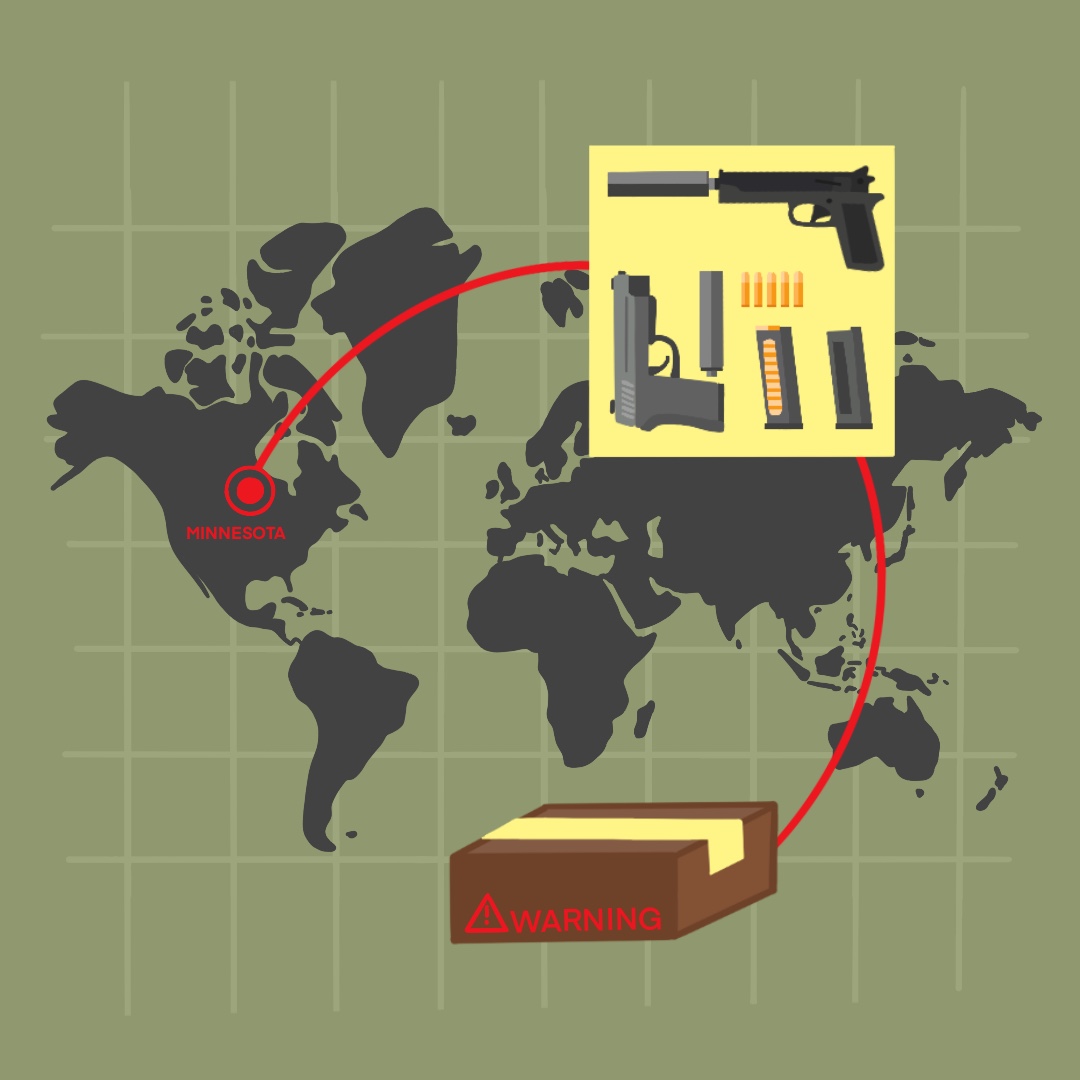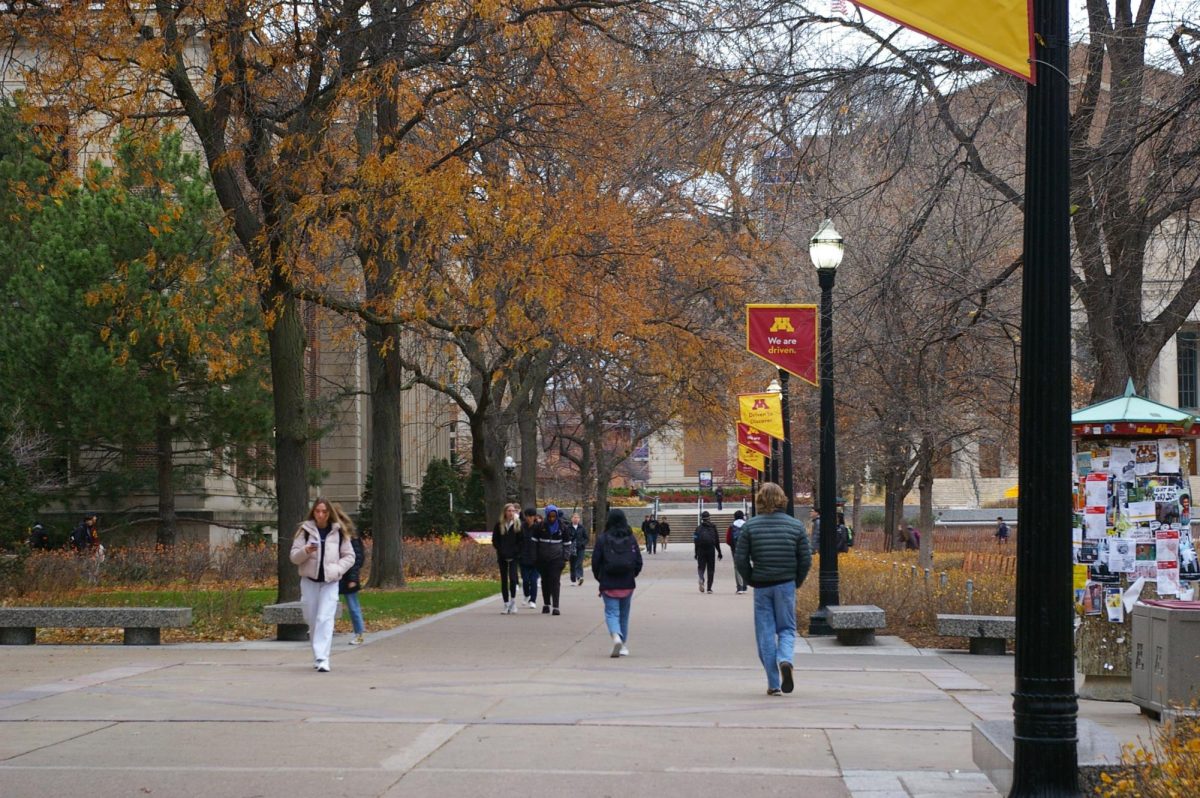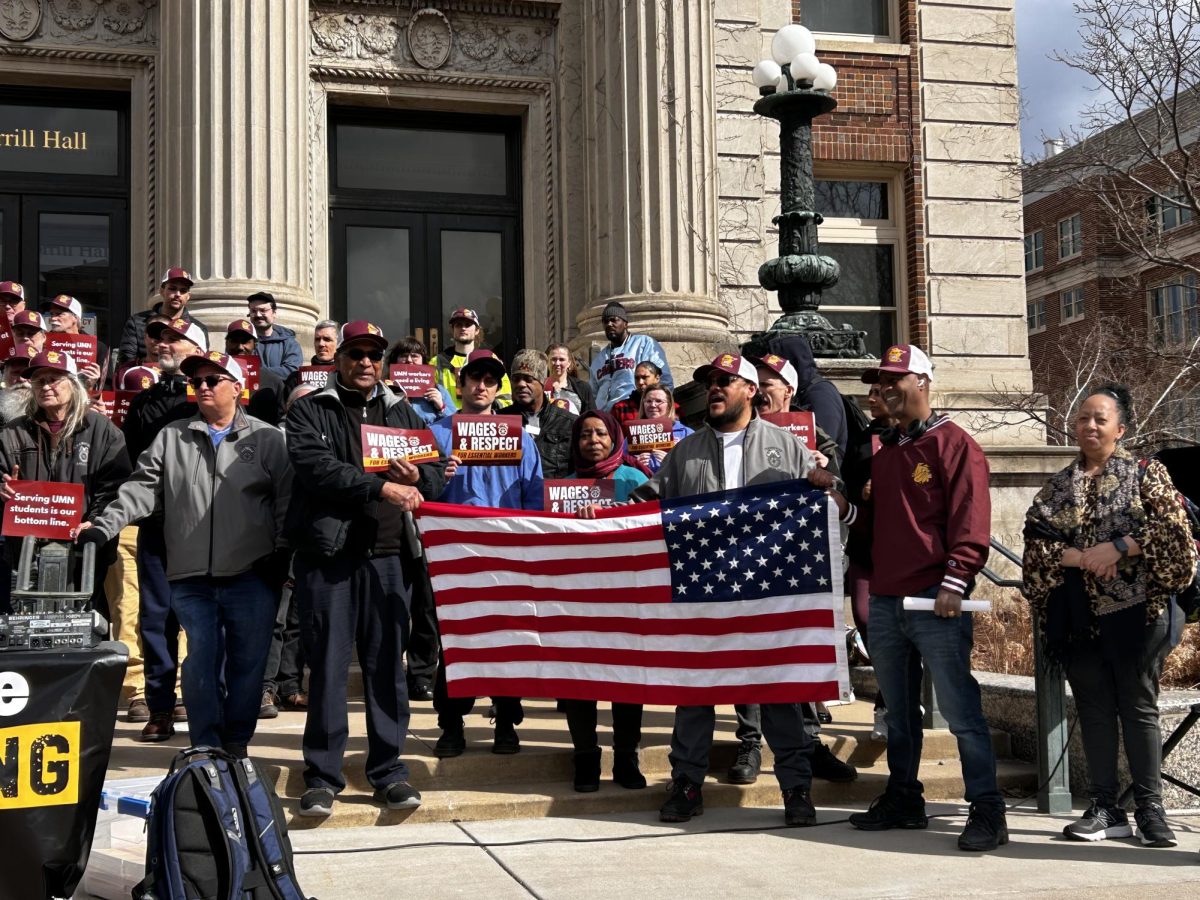The Minneapolis Police Department (MPD) is moving forward with plans to use drones as part of its policing, leaving some residents concerned about how MPD intends to use the technology.
MPD’s plans come in response to a 2020 statute allowing law enforcement agencies to use and maintain unarmed aerial vehicles for investigations, training, emergency response and specific requests. Their goal is to use the drones to “enhance [their] response to public safety emergencies and needs,” according to the department’s presentation to the Minneapolis City Council’s Public Health and Safety Committee on Aug. 24.
The committee held a public hearing directly after the presentation, where MPD Commander Jonathon Kingsbury presented the department’s current draft policy for drone use to the council and said the program is intended for use in active criminal investigations and not for random surveillance of citizens.
Roughly two dozen people attended the hearing and shared their thoughts on MPD’s proposal. Although some voiced support for the program, the vast majority shared concerns regarding increased government surveillance, distrust in the police department and the program moving forward without finalized plans.
“This is not a surveillance program,” Kingsbury said in the hearing. “Please understand that despite what we see on TV or in movies or even on the news, that’s not what this is. This program is set to respond to emergencies and public safety needs.”
Ward 2 Council Member Robin Wonsley is a member of the Public Health & Safety Committee. Despite having her own concerns with the program, Wonsley said there is nothing the council can do to prevent it from moving forward.
“We’re reminded as a council we don’t have authority over MPD,” Wonsley said. “That’s the Mayor’s job … [MPD] is just doing this to check the box.”
In response to the proposed policy, Wonsley and fellow council members Elliot Payne and Linea Palmisano requested a committee hearing on Nov. 14 to review existing surveillance policies and discuss improvements to the city’s public data and oversight practices.
A Minnesota law created in 2020 requires law enforcement to present planned drone programs to a governing body. According to Kingsbury, no further public comment is scheduled on the drafted policy.
MPD is estimating drones will cost between $30,000 and $40,000 in total and will not be purchased until the policy is finalized in the coming weeks, Kingsbury said. MPD will use between six and 10 officers as drone pilots.
A team of six officers, including the deputy chief and commander of special operations, must authorize each drone, the policy draft said. The department is looking to hire drone pilots that already have Federal Aviation Administration (FAA) pilot certification to help get the program “up and running,” Kingsbury said. Any new officers will become certified through the FAA’s training.
Officers will be required to submit police reports for every flight and must operate drones within FAA guidelines unless they have a warrant or special circumstance, Kingsbury said.
The policy draft lists several special circumstances for authorized flights, including conducting rescue missions, collecting information on public areas with “reasonable suspicion of criminal activity,” conducting threat assessments before events and surveilling public events with many people. MPD must delete all data not part of a criminal investigation within seven days in accordance with a state statute. MPD will also be required to submit an annual report detailing their drone usage to the Commissioner of Public Safety.
Additionally, MPD cannot conduct random surveillance, collect data on protests or use visual enhancement technology without a warrant or special circumstance, according to the policy. Weapons, characteristic-based surveillance, harassment, facial recognition technology and the use of drones for officers’ personal business are all prohibited.
The current draft policy does not outline punishments for officers’ misuse of the drones, Kingsbury said.
Munira Mohamed has worked with the American Civil Liberties Union of Minnesota since 2020 and helped organize Safety not Surveillance, a coalition dedicated to protecting civil liberties and privacy. According to Mohamed, MPD must rebuild trust with the community before it starts using new technology.
“This is a technology that is rapidly advancing, [but] it’s not just about the drones,” Mohamed said. “Especially with a police department … that’s currently under investigation for human rights violations as well as a pattern and practice of racial discrimination, this really isn’t the time to be giving them new technology without any strings attached.”
The Minnesota Department of Human Rights (MDHR) released a report in April that found probable cause MPD engaged in “a pattern or practice of race discrimination in violation of the Minnesota Human Rights Act.”
The investigation analyzed body-worn camera footage and MPD documents since 2010. The report alleged MPD officers cite more frequently and use more severe force against Black people compared to white people, maintain a racist culture, lack training and lack accountability for misconduct.
According to MDHR’s report, MPD officers also used fake social media accounts posing as community members to spy on Black activists and organizations as well as criticize elected officials.
Additionally, the U.S. Department of Justice is conducting an investigation into MPD for using discriminatory practices in their policing.
Drones are becoming increasingly popular among Minnesota law enforcement agencies. In 2021, officers from 76 agencies in Minnesota reported using drones without warrants more than 2,200 times, according to a report from the Bureau of Criminal Apprehension (BCA).
The BCA’s report stated Minnesota law enforcement’s drone usage increased roughly 93% compared to the previous year.
Despite more law enforcement agencies implementing drones, Cal Mergendahl, a member of the University of Minnesota student group Students for a Democratic Society, said although they understand the MPD’s desires for drones, the current policy flies in the face of a department that says it’s committed to reform.
“It would be easier to have a conversation about [drones] if we actually had any faith that some accountability body [could represent] the needs of … the most marginalized members of the city and the community who are most likely to be targeted by these things,” Mergendahl said.


